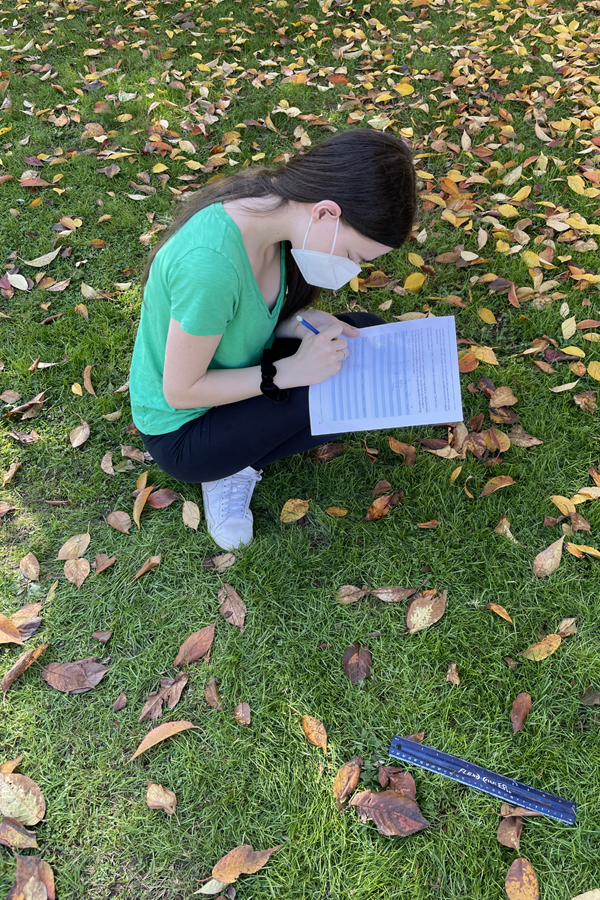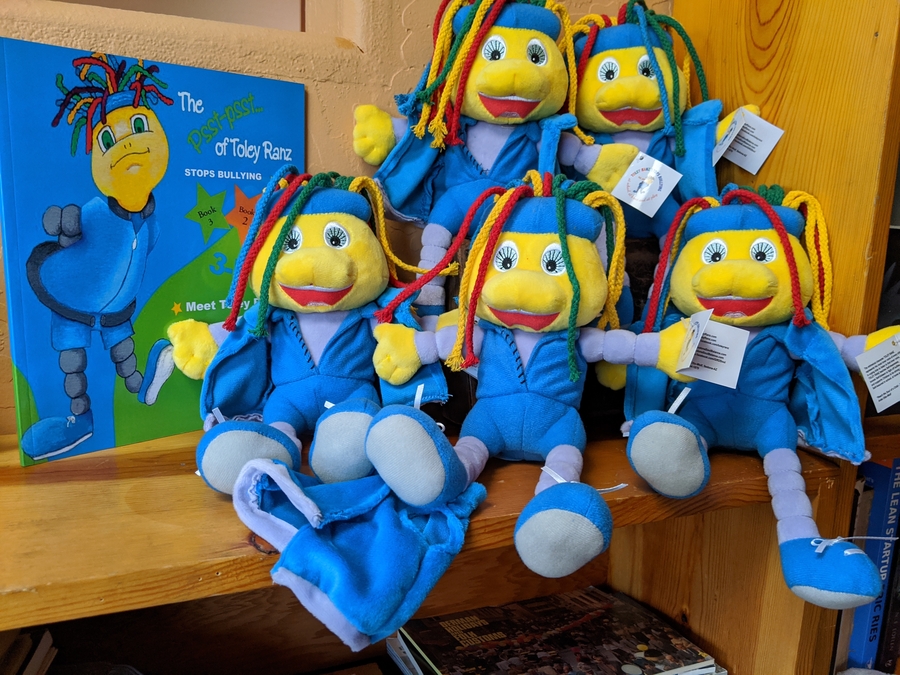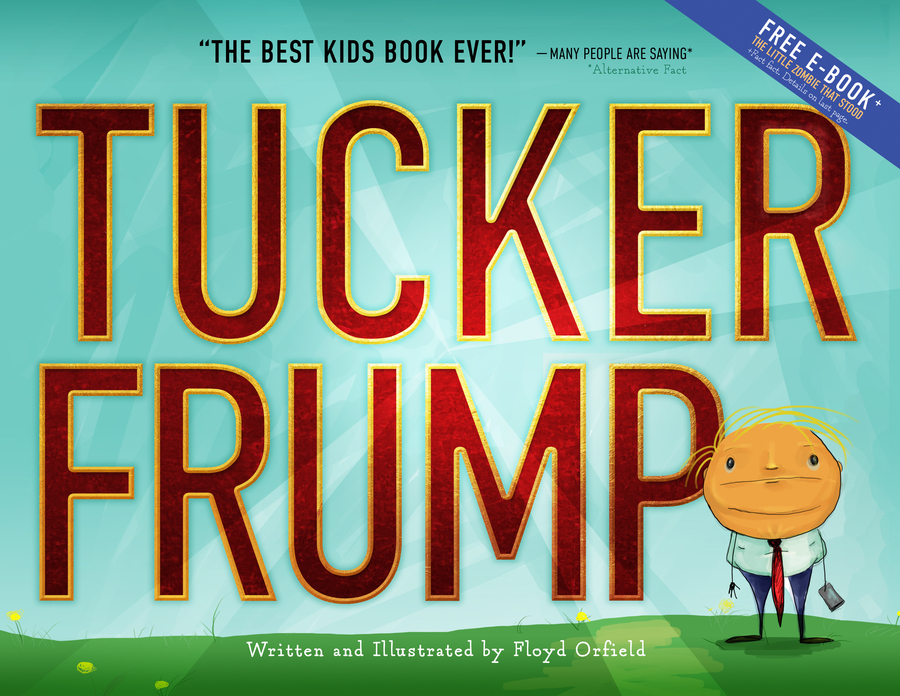Dr. Barbara Becker Holstein is an award winning Selfie Filmmaker, Positive Psychologist and podcaster who helps us overcome anxiety and alienation through multiple media channels.
WILMINGTON, NC, December 20, 2020 /Neptune100/ — A recent story on the NBC News site entitled ‘Covid is having a devastating impact on children – and the vaccine won’t fix everything’, opened our eyes to potential long term effects the pandemic will have on young people. In that article Barbara Duffield who runs Schoolhouse Connect was quoted as saying, “If we fail to address this, we’re just compounding trauma. We’re compounding loss. A student who is homeless, who has a disability, who has been traumatized by the racial violence we’ve seen this year, and then to be disconnected from arguably the only universal support system is disastrous. It means higher rates of suicide. Higher rates of depression, addiction, mental illness and physical disability, particularly for young children who are growing and developing right now. They’ll face more developmental delays leading to deficits in their education as they grow.”
According to award winning author and filmmaker Dr. Barbara Becker Holstein, the current short term problems are likely just the tip of the iceberg . . .
“As a Positive Psychologist and also a filmmaker, I am very concerned about the consequences of the Pandemic on our children,” Holstein stated. “Many others are also, including researchers, teachers, parents, hospitals, and the children themselves as they experience another disappointment, whether they can’t follow a teacher on their tablet as a parent starts to yell in the background or a freshman in college suddenly told to pack up and move home for the rest of the semester as the college announces covid cases.
“Children, tweens, teens, and young adults are at risk in terms of developmental milestones, educational progress, social and emotional growth and serious mental health issues.
“What follows are a sample but certainly not all of the issues:
“Babies may not be picking up on all the facial cues that help them establish normal connections with others, if caregivers are wearing masks some or much of the time.
“Toddlers are missing out on interaction with other toddlers while moms have coffee, or can’t enjoy learning to swim at the Y.
“Preschool children are missing out on playgrounds filled with kids and swings and slides and playdates.
“Elementary school children are being pushed into virtual learning with tablets and less human direct contact with teachers and friends. Also they are often experiencing rage and anger from their parents as the parents attempt to help them with school work for hours at a time, while doing their own jobs from home.
“Junior and High school kids are missing out on so many coming of age activities that they depend on to stretch their social muscles and begin the process of social distancing from their parents as they also socially get closer to their friends – a prom canceled, a graduation done by a drive through, stuck at home instead of out with the gang or a first love.
“And college age kids may find themselves living at home, virtually learning at the very time they most want to be out of the house, away from family, exploring the world. If they live on campus they may be told not to congregate or to go home suddenly.
“All of these situations can and may lead not only to disappointment and frustration but to mental health problems. As a psychologist I seriously worry about emotional effects on kids. Depression and acute anxiety are just as critical when a child has these symptoms, as when an adult does.
“Yes there will be an emotional and social price to pay for all of the above. But there are some ways that parents and kids can overcome these intrusions. Here are some ideas: With young children stay engaged with them as much as possible. Read to them, make eye contact, talk to them, do all the normal, spontaneous handling of babies and toddlers that are natural and normal.
“For a parent of school age kids keeping them from upsets that may mean letting a middle age school child off the hook and not trying to be his or her teacher for 5 hours a day. You are his parent and he will do better making up work later when the Pandemic is over than being watched and seeing you upset over his ability or inability to do work remotely. Also, playdates can happen on zoom and socially distanced get togethers certainly can work when the weather permits. And keep the grandparents in mind. They can help with school work remotely and encourage your child when you are frustrated, tired and maybe had it with him or her.
Adolescents.
“Try to understand their deep frustration and sense of loss when they can’t get together with friends or hang out at the pizza joint, etc. They are reacting to a real developmental loss. Give them some privacy, but also engage with them. Share from your own past, cook together, do a volunteer project that they can help you with, and above all, listen with a third ear. If they need mental health care make sure they get it.
“Here’s what I’m doing: I’ve developed a Pandemic Historical project. One aspect that I’m looking at is college age kids and how they are affected by the Pandemic. To help me, Julia Gesner, a freshman in college is interviewing both students that live on campus and those that live at home. She’s a filmmaker and will add greatly to the Selfie Pandemic History Project. These interviews will be filmed and edited by Julia into films. She will be using her smart phone. You can also become a Pandemic Historian and use your phone to capture Pandemic History! For more information go to http://www.selfiefilmmakers.com.”
“I am making a documentary about college life during the pandemic,” Gesner stated. “Included in the film will be several interviews with students who were on campus and those who studied at home virtually. In addition, I will be including some professors as well. I plan to highlight the challenges that have arisen during the pandemic and illustrate how people have learned to cope with them. This film will not only focus on academic life but examine the social, dormitory, dining, COVID protocols and mental health aspects.”
Month after month for the last few years Dr. Holstein has been winning award after award for her “selfies as drama” conceptual films – over 90 to date. These are not just selfie films. They have at their core positive psychology principles that only Dr. Holstein can bring to the table.
Dr. Holstein’s cutting edge presentations, most recently based on the Covid-19 pandemic issues, can be found on both Youtube, Vimeo and on the Roku channel and Amazon Fire TV, titled as ‘The Enchanted Self Presents’.
Dr. Holstein recently created The Selfie Showcase, a new project emerging from The Selfie Project, that allows young people to voice their opinions on subjects that matter to young people. She is now accepting submissions from the public for the “Selfie Showcase” and is actively seeking change-makers and mental health professionals to appear on her monthly video podcasts.
The Selfie Showcase allows kids, teens, and young adults ages 13 to 18 to candidly express their concerns, worries, observations and possible solutions by creating selfie videos or films around important subjects, using a smartphone. Dr. Holstein’s mission is to help rectify, in a number of ways, some of the issues young people face by giving them a chance to engage with others in meaningful ways about the anxiety and stress they must grapple with constantly.
Selected participants may appear on the Selfie Project Channel, available on Youtube at https://www.youtube.com/channel/UC3uaOTcYF70z5CpBh11VoUQ. They will also appear in the Selfie Showcase on SelfieFilmmakers.com. They will receive a certificate of merit and may be invited to be on Holstein’s monthly podcast or perhaps be a part of her next film. Full details, rules for submission and helpful hints can be accessed at the Selfie Filmmakers site at http://www.selfiefilmmakers.com/instructions.
Dr. Holstein’s unique Selfie Films have taken many awards and have been shown in many film festivals and competitions. A full list can be found at SelfieFilmmakers.com. DVD’s of many of her films are available at Amazon at https://www.amazon.com/MRG-Collective-Selfie-Project/dp/B089781TKJ/re … 078&sr=8-1
Holstein’s podcast series is actively seeking change-makers and visionaries to appear on her monthly podcasts. Dr. Holstein hopes to feature members of traditional media, mental health professionals and educators who can make a real difference in the lives of young people. Many of the podcasts feature young people – to give them a voice regarding their concerns and their solutions. Guests, if accepted, can arrange to appear by contacting Dr. Holstein directly.
Dr. Holstein is available for media interviews and can be reached using the information below or by email at [email protected]. More information about the Selfie Showcase is available at http://www.selfiefilmmakers.com. Selfie videos and selfie films can be uploaded at http://www.selfiefilmmakers.com. Potential podcast guests can contact Dr. Holstein by email. More information is available at her primary website at http://www.enchantedself.com.
Dr. Barbara Becker Holstein, internationally known Positive Psychologist is the creator of The Enchanted Self ®, a positive psychology method for happiness and a pioneer in Selfies as Film. Dr. Holstein’s Enchanted Self website was included as one of the best websites in positive psychology. She is in private practice in Long Branch, New Jersey with her husband, Dr. Russell M. Holstein.
Dr. Barbara can be found on the web, interviewed, writing articles and posting video ‘TED’ style talks on Happiness, Positive Psychology, Relationships and Parenting. Her RoKu channel is: The Enchanted Self Presents.
She has been a contributor to Your Tango, Heart and Soul, The Philadelphia Inquirer, Honey Good, Cosmopolitan Magazine, Redbook, Real Simple, Women’s World, The Wall Street Journal, Psychcentral.com, Time on line, the Today Show and Family Circle Magazine.





